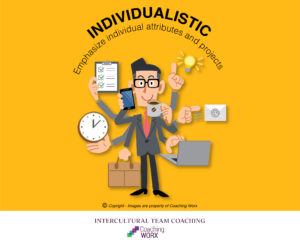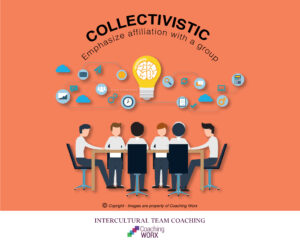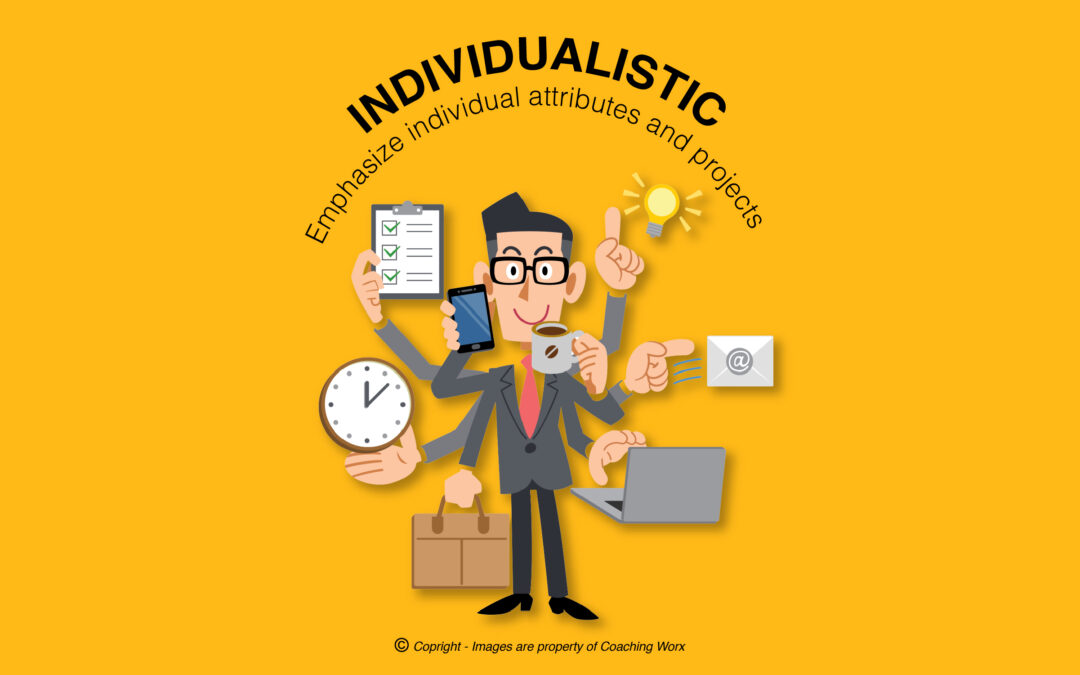INTERCULTURAL TEAM COACHING – Moving from Great to Greatness
The Cultural Orientations Framework COF™” Assessment, a ground breaking tool which enables us to learn our cultural orientation dimensions and is an eye-opener for organizations involved in sustainable Diversity, Equity, Inclusion & Justice Programs.
Today, I am focussing on the Third Category – “Definitions of Identity and Purpose” with the dimension of “Individualistic/Collectivistic” in the “Cultural Orientations Framework COF™, are two different ways of viewing our Identity, which are often associated with different cultures and work styles.
‘Individualistic’: Individualism is a philosophical and social belief that emphasizes the importance of the individual and individual freedom, autonomy, and self-reliance. An individualistic person tends to value their own independence, personal responsibility, and self-determination over the collective good or social norms. In an individualistic culture, people tend to prioritize their own goals and desires above those of the group, and there is a focus on individual achievement and success.

In summary, individualism is a belief system that emphasizes the importance of individual freedom and autonomy. While it can have positive effects, it can also have negative consequences if taken to an extreme or if it undermines social cohesion and community.
‘Collectivistic’: is a philosophical and social belief that emphasizes the importance of the collective or group over the individual. In a collectivistic culture, people tend to prioritize the needs and goals of the group over their own personal desires or interests. This can manifest in a variety of ways, such as in a strong emphasis on family, community, or the nation.

It’s important to note that the degree to which a culture or society is collectivistic or individualistic can vary widely, and different cultures may strike different balances between the two. Additionally, it’s possible for individuals to hold beliefs and values that are both individualistic and collectivistic, depending on the situation or context.
In a team where individuals have different orientations regardless of their backgrounds much conflict may arise due to a lack of understanding of each other’s orientation. The Benefit of the COF™ Assessment is that it will create an awareness of our individual and team approaches to their definition of Identity and Purpose and finding the balance, so that with understanding we create a conducive workplace where everyone is included and feels a greater sense of belonging regardless of visible differences.
To learn more, you may visit COFassessment.com. If you or your organization is interested in a COF™ Assessment you may contact me at [email protected].
Source: “Coaching Across Cultures” Philippe Rosinski.

